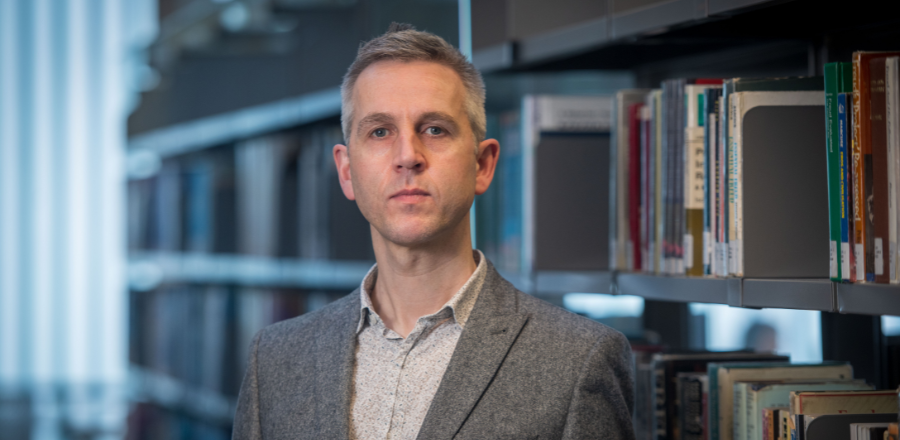Stigma is causing people with mental illness to hold back in life

People with complex mental illnesses experience discrimination in many areas of their lives, causing them to withdraw from relationships, friendships, work and health care.
First of its kind research in Scotland, involving Glasgow Caledonian University (GCU), has revealed the full impact of stigma and discrimination on people with severe, enduring and complex mental illnesses.
The Scottish Mental Illness Stigma Study was carried out by See Me, Scotland’s programme to end mental health stigma and discrimination, in collaboration with the Mental Health Foundation, VOX Scotland and GCU, and the results were released today (September 27).
GCU Professor of Applied Psychology Simon Hunter, who helped lead and design the study, and co-authored the final report, hopes the study will shape future policy to reduce stigma.
He said: “The Scottish Mental Illness Stigma Study is the first study of its kind in the UK, and paints a disturbing picture of the different ways that stigma and discrimination can be experienced by people who live with severe and enduring mental illness in Scotland.
“These problems were encountered in almost every area of people’s lives, from housing, relationships, and employment, to healthcare provision, banking, and social media.
“Our aim is that the stories that were shared with us can shape future policy to reduce stigma and discrimination. In this way, we can improve the lives of thousands of people living with severe and enduring mental illness in Scotland.”
The study explored the experiences of people who live with long-term, enduring mental illnesses, and who have faced stigma over the last year. It found that nine in ten had suffered stigma in relationships, nearly eight in ten in healthcare services, and 71% in employment.
Years of stigma and discrimination towards people with mental illness has left people feeling ashamed and assuming that the public, and people in positions of power think the worst of them, including that they are to blame for their conditions, while more than half of people with mental illness said they respect themselves less because they think they will never get better.
Participants were asked to identify the three life areas where stigma had the greatest impact. Of those who identified mental healthcare services, more than half (58%) have avoided calling an ambulance or attending A&E when in need of emergency help for their mental health, due to previous negative experiences.
For those who chose relationships, four in 10 (45%) participants agreed that they had stopped themselves from starting a family or having children due to mental health stigma; in employment, 85% stopped themselves from applying for jobs; and in mental healthcare services, 80% had also stopped themselves from getting help from mental health services.
See Me is now calling for major change across Scottish society to ensure that people with mental health illness feel safe and included in all aspects of life.
See Me director Wendy Halliday said: “The number of people withdrawing from opportunities which many of us take for granted – like starting a family, making friends and going to work – demonstrates how unjust life is, and how much needs to change.
“In society we need to reduce social inequality and stop people from being excluded from employment, education, and relationships.
“Mental health education must be embedded across all parts of our lives, from the school curriculum and improved student or workplace education, to public campaigns to encourage more open dialogue at home.
You can read the report in full at www.seemescotland.org/stigmastudy and watch the Common Good Podcast with Professor Simon Hunter here - https://soundcloud.com/gcu-common-good-podcast/the-scottish-mental-illness-stigma-survey-results-with-professor-simon-hunter
